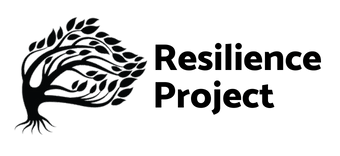Recently Added
Tags
2020 Webinar
2021 Webinar
Climate
climate change
collapse
community resilience
conflict
COVID-19
Ecology
Economics
education
energy
Engery Systems
enviromental sustainablity
Featured
Featured Video
food systems
Geo Politics
Ghastly Response Discussion
Joan Diamond
Kim Stanley Robinson
landscape
Michael Lerner
Michael Webber
Nate Hagens
nongovernmental organization
Paul Ehrlich
Pete Myers
Population
portrait
Post Carbon Institue
Power Grid
Raphaël Stevens
resilience
resource
Richard Hienberg
Russel Chisholm
Shanna H. Swan
Social Systems
Storms
Texas
The Cascade Institute
Thomas Homer-Dixon
Underestimating the Challenges of Avoiding a Ghastly Future
website

Commanding Hope
in BooksBy Tad Homer Dixon, Knopf Canada
Commanding Hope marshals a fascinating, accessible argument for reinvigorating our cognitive strengths and belief systems to affect urgent systemic change, strengthen our economies and cultures, and renew our hope in a positive future for everyone on Earth.
We’re Living in a Global Polycrisis: It’s Time to Build Resiliency
in Articlesby David Bonbright
If you watched the excellent series on the Chernobyl disaster, you can see with perfect hindsight why many say that Chernobyl was the proximate cause for the collapse of the Soviet Union.
You can see it in the way incentives drove bad decisions, which reinforced each other. This is what complexity science calls a positive feedback loop. The recent winter storms in Texas offer another teachable moment, illustrating how failures in one system cascade over to other systems. Freezing rain and snow break the electric and heating grid. Pipes break and the water system collapses. Transport stalls and stores are not restocked. An already overstrained health system drops more services. The science points to more of these breakdowns – and, let’s be clear, there is no credible dissent to the science. In this light, isn’t it time to prepare for it “just in case”? We’re Living in a Global Polycrisis: It’s Time to Build Resiliency, by David Bonbright, Giving Compass.
Ministry For The Future
in Books, FictionThe prolific science-fiction writer Kim Stanley Robinson, who is at heart an optimist, opens his newest novel, The Ministry for the Future, with a long set piece as bleak as it is plausible. Somewhere in a small city on the Gangetic Plain in Uttar Pradesh during the summer of 2025, Frank, a young American working for an NGO, wakes up in his room above a clinic to find that an unusually severe pre-monsoon heat wave has grown hotter still and more humid—that the conditions outside are rapidly approaching the limit of human survival. Actually, conditions inside are approaching the same level, because the power has gone out.
Read full review here
Michael Webber hosted by Shorey Myers
in Events, Video, WebinarWhat Happens in Texas Won’t Stay in Texas webinar with Michael Webber
Ashok Khosla hosted by Michael Lerner
in Events, Video, WebinarEducation, empowerment, employment and economics: tools for building a promising future.
Innovation and crisis: Is our fight against COVID-19 a critical juncture?
in ArticlesUnderestimating the Challenges of Avoiding a Ghastly Future
in ArticlesThe Resilience Roundtable hosted by Christina Conklin
in Video, WebinarRound table discussion with Joan Diamond, Steve Heilig, Samantha Suppiah, Ed Saltzberg, and Jason Groves hosted by Christina Conklin
Raj Patel hosted by Shorey Myers
in Video, WebinarThe World That Food Made
Nate Hagens hosted by Michael Lerner
in Video, WebinarNavigating a Path Between Fantasy and Doom – A Top-Down Overview